
 Flash News
Flash News
"Arsonist" arrested for repeatedly setting fires in Vlora (NAME)
Three cars collide in Tirana, one of them catches fire
He abused his minor daughter, this is a 36-year-old man in custody in Fier
Serious in Fier! Father sexually abuses his minor daughter
The phone found in prison is expected to be disassembled, Laert Haxhiu risks isolation in '41 biss'
High Romanian turnout in elections that could deepen divisions in the EU
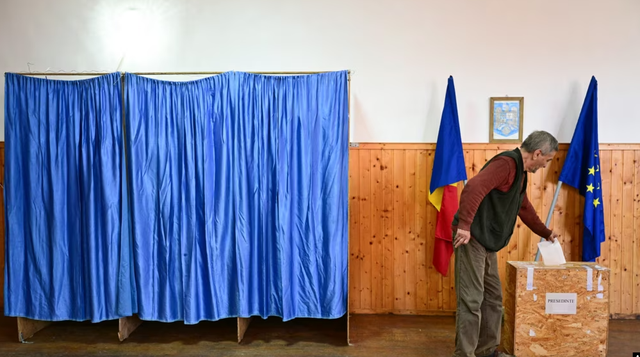
Romanians turned out en masse to vote in the second round of a controversial presidential election, a vote that followed months of unprecedented political chaos.
Turnout at noon on May 18 was significantly higher than during the first round, with voters outside Romania casting a larger number of votes than had been anticipated over the two days of voting.
Romanians are voting in a presidential runoff election, where they could choose between a far-right Eurosceptic and a centrist independent, and where the outcome could have an impact on both the country's weakened economy and unity within the European Union.
Far-right nationalist George Simion, 38, who opposes military aid to neighboring Ukraine and is critical of European Union leadership, led convincingly in the first round of the presidential election, causing the fall of a pro-Western coalition government.
Bucharest's centrist mayor, Nicusor Dan, 55, who has pledged to fight corruption, is strongly pro-European Union and NATO. He has said Romania's support for Ukraine is essential for its security in the face of the growing threat from Russia.
The president of an EU and NATO member state has considerable powers, including heading the defense council that decides on military aid. He also oversees foreign policy and has the right to veto EU votes that require unanimity. Romania is one of five EU states that does not recognize Kosovo's independence.
Whoever is elected will also have to propose a prime minister to negotiate a parliamentary majority to reduce Romania's budget deficit - the largest in the EU.
A poll on Friday predicted that Dan, for the first time since the first round, was slightly ahead of Simion in a close race that will depend on turnout and the large Romanian diaspora.
Some 2.06 million Romanians, or 11.5% of registered voters, had cast their ballots by 8:34 a.m., according to data, including overseas voting. Voting closes at 8 p.m., after which exit polls will be published, followed by preliminary results in the evening.
The president can only serve two five-year terms.
"Unlike Western countries that can more easily cope with mistakes, trust in Romania can be lost much more quickly and may ... take generations to recover," said Radu Burnete, director of the country's largest employers' group.
Political analysts have said that a victory for Simion, a supporter of US President Donald Trump, would risk isolating the country internationally, eroding private investment and destabilizing NATO's eastern flank.
The vote in Romania takes place nearly six months after the initial round was canceled due to allegations of Russian interference - denied by Moscow - in favor of far-right candidate Calin Georgescu, who was barred from running again.
Simion owes much of his success to popular anger against this decision, as well as frustration with the main parties who are blamed for the high cost of living, inequality and corruption.
He has said he would choose Georgescu, who supports nationalizations and an open stance towards Russia, as prime minister.
Simion voted alongside Georgescu, who has called him his "protege," on the outskirts of Bucharest, accompanied by bodyguards and surrounded by supporters.
"I voted against abuses and ... poverty," Simion said. "I voted against those who despise us all."
Dan voted in his small town in central Romania, Fagaras, hugged teachers from the high school where he studied and called on people to vote, saying that "Romania is choosing its future for more than five years, it is at a turning point."
"I voted for change that brings prosperity, not for discouraging investment in Romania. I voted for ... good cooperation with our European partners and not for isolation," he said.
Also on Sunday, Poles vote in the first round of Poland's presidential election, with the pro-European Union mayor of Warsaw, Rafal Trzaskowski, and conservative historian Karol Nawrocki expected to lead.
A victory for Simion and/or Nawrocki would expand the group of Eurosceptic leaders, which already includes the prime ministers of Hungary and Slovakia, in a political shift in Central Europe that could deepen divisions in the EU.
“What (nationalists) want is a European Union that is as little integrated as possible,” said political analyst and historian Ion M. Ionita. “An EU where decisions are made only at the national level, but still benefiting from European money.”
Some analysts said online disinformation was widespread ahead of Sunday's vote.
“We are seeing misinformation spreading rapidly across social media platforms – through bots and strategic re-distributions that mimic authentic posts,” said Roxana Radu, an expert at the Blavatnik School of Government at the University of Oxford. REL
Latest news

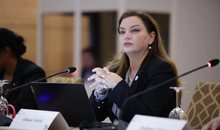

Meet Kozeta Miliku, named one of the top five scientists in Canada
2025-07-01 16:32:12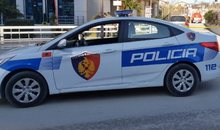
"Arsonist" arrested for repeatedly setting fires in Vlora (NAME)
2025-07-01 16:29:45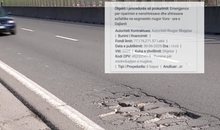
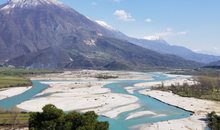
The ecological integrity of the Vjosa River risks remaining on paper
2025-07-01 16:09:40
Heat Headache/ Causes, Symptoms and Measures You Should Take
2025-07-01 16:01:13
UN: The world must learn to live with heat waves
2025-07-01 15:54:50
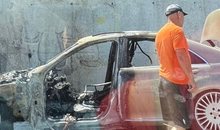
Three cars collide in Tirana, one of them catches fire
2025-07-01 15:38:16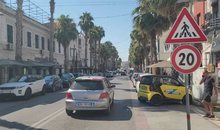
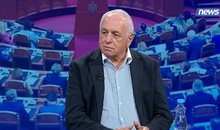
Shehu: Whoever doesn't want Berisha, doesn't want the opposition 'war'!
2025-07-01 15:19:20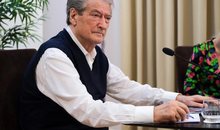
Berisha requests the OSCE Assembly: Help my nation vote freely
2025-07-01 15:11:46
Be careful with medications: Some of them can harm your sex life
2025-07-01 15:00:32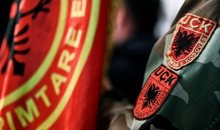
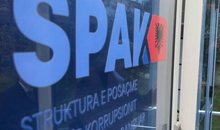
'Golden Bullet'/ Lawyers leave the courtroom, Altin Ndoc's trial postponed again
2025-07-01 14:44:52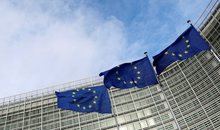
EU changes leadership, Kosovo in a number of places
2025-07-01 14:40:01
Should we drink a lot of water? Experts are surprised: You risk hyponatremia
2025-07-01 14:30:20
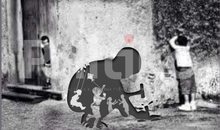
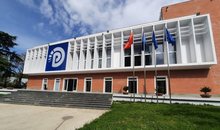
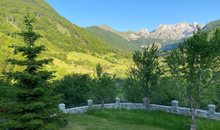
Lëpusha beyond Rama's postcards: A village that is being silently abandoned
2025-07-01 13:41:56
Scorching temperatures in France close the Eiffel Tower
2025-07-01 13:29:35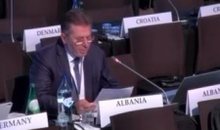
Media: China, Iran and North Korea, a threat to European security
2025-07-01 13:20:12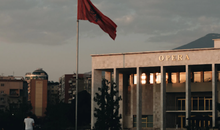
Albania drops in global index: Less calm, more insecure
2025-07-01 13:09:35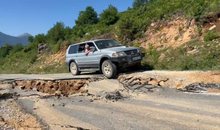
Road collapses, 5 villages in Martanesh risk being isolated
2025-07-01 13:03:04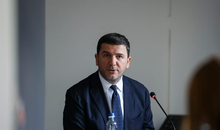
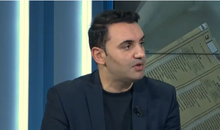
Këlliçi: Opposition action to be decided in September
2025-07-01 12:48:49
Four tips for coping with the heat wave
2025-07-01 12:38:53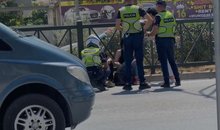
Car hits pedestrian on Transbalkan road
2025-07-01 12:27:09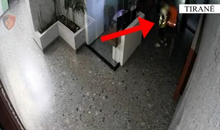
Authors of 9 robberies, Erjon Sopoti and Abdullah Zyberi arrested
2025-07-01 12:15:56
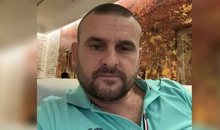
He abused his minor daughter, this is a 36-year-old man in custody in Fier
2025-07-01 11:50:34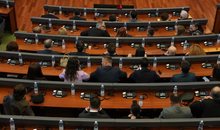
The constitution of the Kosovo Assembly fails for the 40th time
2025-07-01 11:40:08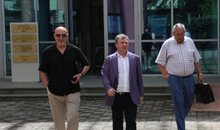



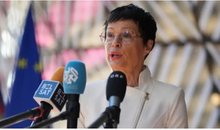
EU confirms support for the Western Balkans
2025-07-01 10:50:45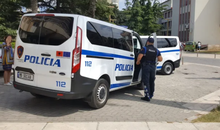
Serious in Fier! Father sexually abuses his minor daughter
2025-07-01 10:32:33
One year since the passing of the colossus of Albanian literature, Ismail Kadare
2025-07-01 10:25:26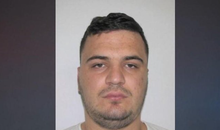

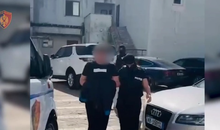
They supplied the 'spaçators' with drugs, two young men are arrested in Tirana
2025-07-01 09:54:09
Europe is "scorching", how dangerous are high temperatures?
2025-07-01 09:48:56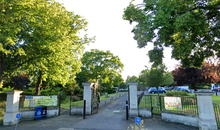

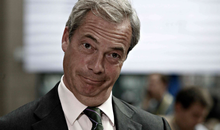
Nigel Farage in Albania: but why?
2025-07-01 09:13:12
Xama: The "Partizani" dossier is quite weak and without facts!
2025-07-01 09:04:47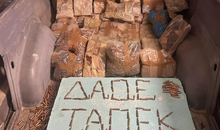

Foreign exchange, the rate at which foreign currencies are sold and bought
2025-07-01 08:35:39
Fabricators again warn of factory closures and job cuts
2025-07-01 08:21:30
Horoscope, what do the stars have in store for you today?
2025-07-01 08:08:59
Scorching hot, temperatures reaching 40°C
2025-07-01 07:57:12
Morning Post/ In 2 lines: What mattered yesterday in Albania
2025-07-01 07:42:59
Recount after May 11, Braho: I had no expectations for massive vote trafficking
2025-06-30 22:54:18

Second hearing on the protected areas law, Zhupa: Unconstitutional and dangerous
2025-06-30 22:18:46



Israel-Iran conflict, Bushati: Albanians should be concerned
2025-06-30 21:32:42

Fuga: Journalism in Albania today in severe crisis
2025-06-30 21:07:11
"There is no room for panic"/ Moore: Serbia does not dare to attack Kosovo!
2025-06-30 20:49:53

Temperatures above 40 degrees, France closes nuclear plants and schools
2025-06-30 20:28:42
Lavrov: NATO is risking self-destruction with new military budget
2025-06-30 20:13:54
Turkey against the "Bektashi state" in Albania: Give up this idea!
2025-06-30 20:03:24

Accused of sexual abuse, producer Diddy awaits court decision
2025-06-30 19:40:44



Kurti and Vučić "face off" tomorrow in Skopje
2025-06-30 18:44:12
Tourism: new season, old problems
2025-06-30 18:27:23


Construction worker dies after falling from scaffolding in Berat
2025-06-30 17:51:44




Almost free housing: East Germany against depopulation
2025-06-30 16:43:06

Hamas says nearly 60 people killed in Gaza as Trump calls for ceasefire
2025-06-30 16:14:15
Drownings on beaches/ Expert Softa: Negligence and incompetence by institutions!
2025-06-30 16:00:03


European ports are overloaded due to Trump tariffs
2025-06-30 15:30:44
The prosecution sends two Korça Municipality officials to trial
2025-06-30 15:19:54

Lezha/ Police impose 3165 administrative measures, handcuff 19 drivers
2025-06-30 14:55:04
Young people leave Albania in search of a more sustainable future
2025-06-30 14:47:52
Record-breaking summer, health threats and preventive measures
2025-06-30 14:36:19


Constitution of the Parliament, Osmani invites political leaders to a meeting
2025-06-30 14:07:54

